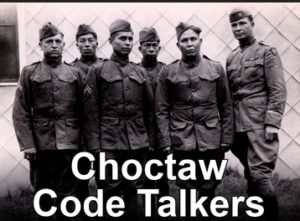 BY EMILY STURGEON / ON APRIL 3, 2014 AT 12:19 AM /
BY EMILY STURGEON / ON APRIL 3, 2014 AT 12:19 AM /
In an explanation of her work exploring race relations in America, Michele Norris said it is important to spark national dialogue about the still-relevant topic of race, even if it is with just six words.
Norris, a renowned radio journalist and former host of National Public Radio’s “All Things Considered,” delivered the annual Frank A. Nix Lecture in Morgan Hall on Wednesday night. The event, hosted by the Blackburn Institute, focused on the motives for Norris’ initiative titled “The Race Card,” in which participants describe their experiences about race in six words.
“Over time it had become this window into that conversation about race that you know is out there but you generally don’t get a chance to hear,” Norris said. “I tried to rope them together, and when you listen to them, they really do sound like that conversation.”
(See also “Survey finds disjointed views on race relations“)
Although initially the responses were very aspirational and idealistic, she said eventually the cards led to a deeper insight on the underlying sentiment toward race in America.
http://cw.ua.edu/2014/04/03/norris-sparks-conversations-on-race-relations/
“It creates a window, an avenue to talk about those things and to look in the crevices and see the things that are not immediately apparent to us, because race – face it – is something that’s a little bit difficult to talk about,” she said.
Norris’ discussion of the projects and experiences in her life leading up to the Race Card initiative included her coverage of the 2008 presidential election, which she said people felt was a turning point in race relations in America.
“’Post-racial’ suggested that racism is over. ‘Post-racial’ suggested that we could take an express elevator up to the top floor where the view was wonderful, and no one was ever going to say anything that might make you uncomfortable,” she said. “And yet when I was traveling the country, and I was traveling the country quite a bit at that time, I was hearing something that was very different. I was hearing a very animated conversation about race. It was not like people were obsessed, but people were talking about race in a different way. People were thinking about race in a different way, and I wanted to put an ear to that conversation.”
Norris also discussed how interviewing voters about the racial aspects of the elections for her radio project in York, Penn., opened her up to the idea of the significance of communication in race relations.
“It was amazing radio not because of the bells and whistles and high production values,” she said. “It was amazing radio because people came together over a supposedly toxic, difficult topic and had this really honest conversation of the kind you don’t normally hear on the radio.”
Norris said her work on her memoir “The Grace of Silence” had a similar effect in pushing her to initiate dialogue. In the memoir, she discusses the personal family experiences regarding race.
(See also “UA community members march against segregation“)
“Suddenly, it was like they all went through this period of historic indigestion, and these stories just started coming to the surface,” she said. “These stories that came up made me realize that as interested as I was in hearing that national conversation, I needed to pay more attention to the conversation that was percolating at the dinner table. I was learning new things about my family and, through that, learning new things about America.”
Norris said she arrived at the title because she understood that the reason her family kept silent about their past was to create her a path, uncluttered by their own frustrations, but she said she also felt history would play an important role in overcoming these frustrations.
“In doing this research, it taught me, yes, about the grace of silence, but more importantly about the power of history, the power of dialogue and the power of trying to figure out ways to have the conversation about these difficult aspects of history,” she said.
Norris said she realized that people were using the Race Cards as an opportunity to say things that they don’t generally say in the public sphere.
“It’s been an honor to be able to share these stories, and it’s taught me in the most profound way that the most important thing I do as a journalist is not just talk,” she said. “The most important thing I do is listen. And the most important thing I can do is create a space where people can listen to each other and encourage people to have these conversations, as difficult as they are.”
Norris distributed Race Cards before her lecture to be filled out by audience members.
“I really like that she’s using this and social media as a way to promote dialogue about race,” Mollie Tinney, a doctoral student studying instructional leadership, said. “I feel like its something that people don’t do a lot, and I think it’s a really good way to get people talking about it.”
Encouraging students not to take their understanding of where they have been for granted, Norris stressed the impact in understanding other people’s stories.
“This story is part of history, and unless we lean in and capture these stories, they may be lost to us,” she said. “Yes, there’s grace in silence, but there’s power in history, and there’s so much power if we actually find a way to listen to each other.”







